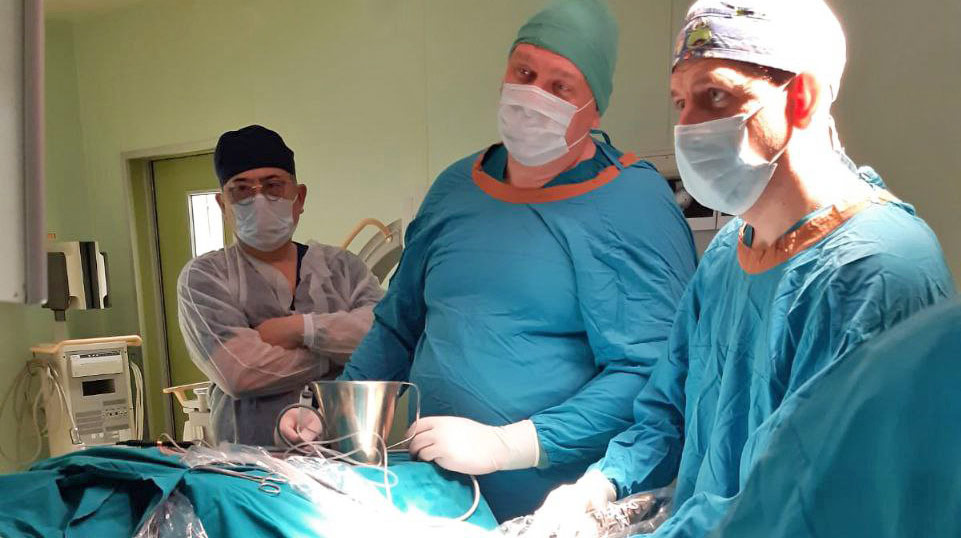| Menu | Message | Call |

A rare operation was successfully performed in the neurosurgery department: Endoscopic removal of chronic subdural hematoma.
A 67-year-old man was urgently taken to the hospital with a suspected stroke. Symptoms such as speech impairment and weakness in the limbs indicated acute cerebrovascular accident, but a computed tomography scan of the brain did not confirm the diagnosis. A chronic subdural hematoma was identified, resulting from a long-standing head injury.
The hematoma was a life-threatening and was an intracranial collection of blood caused by a ruptured blood vessel between the skull and the brain.
Within a few weeks after the injury, the original hematoma was encapsulated and the capsule began to produce fluid on its own, resulting in an increase in the volume of the hematoma and compression of the right hemisphere of the brain.
The peculiarity of this hematoma was that it was multi-chambered and separated by partitions (septa), which is rare.
In such cases, surgical treatment is indicated — craniotomy, which entails greater trauma with a long recovery period.
At the medical consultation, it was decided to perform the operation endoscopically, which was performed by neurosurgeons: deputy chief physician for surgery S.A. Asratyan, head of the neurosurgery department V.V. Pak, neurosurgeon D.L. Paskhin. and neurosurgeon Belkov M.V.
Previously, such operations have not been performed using the endoscopic method in our clinic.
A small hole was drilled in the patient's parietal region in the projection of the hematoma to insert an endoscope. Under visual control, one of the parts of the hematoma was opened, and, thanks to the intersection of the septa, all chambers were combined into one. This made it possible to better sanitize the hematoma cavity and minimize the risks of its re-formation.
With the help of a catheter through which the contents were drained, the hematoma was completely freed, and the brain was able to straighten out.
A month later, a repeat CT scan revealed no signs of hematoma, and there was no compression of the brain.
At the moment, the patient's life and health are not in danger.